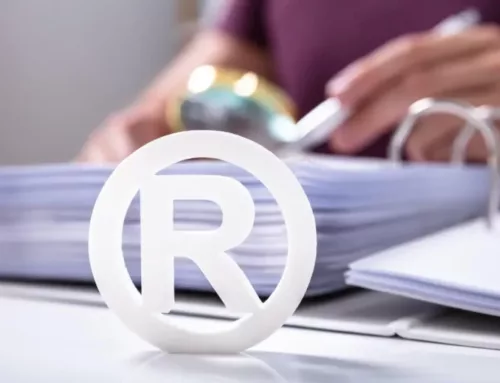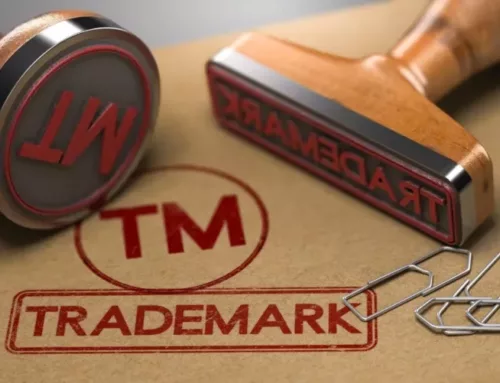Any type of intellectual property (IP) such as a word, design, sound, or slogan/phrase, that connects a company with a particular service or good, is a trademark and should be protected. When a company comes up with distinguishable and unique intellectual property it can benefit them and give them an edge over their competition. However, if IP is not safeguarded, others may take it and use it, diminishing its value to those who originally created it. Trademarks are a form of IP, and companies can in many cases protect their exclusive rights to these valuable assets by registering them with the United States Patent and Trademark Office (USPTO). The benefits of registering a trademark can be significant, but trademark registration costs may be intimidating to some entrepreneurs. For more information about trademarks and how they can help your business, connect with a Washington, D.C. intellectual property attorney at War IP Law PLLC by calling (202) 800-3754.
What To Expect for Trademark Costs
Trademarks themselves are free, but the costs of registering them can vary. The USPTO’s application filing fee, at a minimum is $250 per class applied for. In some situations, the USPTO’s application filing fee is $350 per class applied for.
Overall trademark costs come about as a result of the cumulation of several expenses. Although a trademark attorney will likely charge their own fees, working with an experienced professional can make it easier to navigate the trademark application process effectively, saving both time and money by helping business owners to avoid costly repeat filings and procedural delays.
Types of Expenses Calculated in Trademark Costs
There are going to be various factors that may contribute to determining the cost for registering a trademark. At the federal level, trademark registration costs may include any or all of the following:
Legal Fees
According to the USPTO, trademark owners are not legally required to enlist the services of an attorney in filing their applications to register their trademarks. However, even seemingly small mistakes can cause an application for trademark registration to be rejected. Due to the critical importance of the safeguards that a trademark offers, it is vital that things are done properly.
In some instances, even though an attorney’s fees may look like an addition to the overall cost of registering a trademark, the assistance of an attorney could actually save money in the long run. For instance, if a trademark application is finally refused or terminated, the fee that has already been paid to submit the application is non-refundable. An experienced intellectual property attorney with War IP Law PLLC can be able to explain more about how an IP lawyer can assist you with filing an application to register your trademark.
Searching for Conflicts
To be registered, an applied-for trademark may not conflict with others already submitted for registration. To avoid this costly miscalculation, it is helpful to conduct a clearance search through the USPTO’s Trademark Electronic Search System (TESS). There is no fee to access TESS, so an applicant may perform the initial searches on their own. However, navigating the system does take time and can be more efficient with the benefit of expertise, so, many businesses choose to place the search in the hands of an intellectual property lawyer whose services they have retained for the purpose of assisting with the trademark registration process. Whether working with an attorney or on their own, business owners will want to search state-level databases in addition to TESS in order to ensure the most comprehensive search possible.
Creating a Drawing
A trademark registration applicant may need to provide a detailed verbal description of the mark. A drawing or other visual representation of the mark may also be needed. Here too, the assistance of a professional is not a legal requirement – but it is generally advisable nonetheless. Given the complexity that comes with the standards of the drawing, it may be helpful to have the image developed by a professional artist, a service which can add around $500 to a trademark application cost.
Submitting a Trademark Application
There are two ways to submit a trademark application. These are by paper or electronically. The cost for a paper submission will usually be higher than those of submissions that are completed electronically.
Type of Application
Trademark owners will either file a TEAS Plus application, which costs around $250 for every class of goods or services for which the application seeks to register the mark in question, or a TEAS Standard application, which entails a fee of about $350 for every class of goods or services. TEAS Plus is less expensive and faster than TEAS Standard. A TEAS Plus application also requires that the applicant provides certain information and that the goods and/or services are predefined in the database maintained by the USPTO. However, if an applicant requires flexibility and greater options for describing a good or service, then the TEAS Standard may be the most appropriate choice.
Filing for Classes
Trademark classes are used to sort goods and services into categories of similar items. A trademark is used to identify the brand behind individual goods and services in the marketplace, so a brand that offers goods or services across more than one trademark class may need to include multiple trademark classes on their application for trademark registration in order to receive the fullest protection of the law. Because some of the costs associated with trademark registration are based on the number of classes for which a business seeks to register its IP, in general more trademark classes will be associated with higher trademark registration costs
Ongoing Costs
Once a trademark registration has been approved, keeping the registration active will cost money in the future. Trademark renewal fees can cost over $500. Late fees also apply if fillings are submitted late.
State Trademarks
Entities that only need trademark protections within the boundaries of their home state may find a state trademark registration to be a cost-effective alternative to a federal one. State trademark registrations frequently have a lower cost than that of federal registration through the USPTO. Some states, however, still recommend that trademark registration applicants seek the assistance of an attorney or other trained and licensed professional in completing their applications for trademark registration. Moreover, if you don’t register your trademark at the federal level, third parties may use your mark in states other than your own. This use by third parties could be harmful to the goodwill you’ve developed for your trademark.
Speak With a Trademark Attorney Today
Trademarks offer important legal protections to certain types of intellectual property. For a company that determines it will operate in only one state, then a state trademark may be an appropriate and cost-saving choice. For businesses seeking and expecting to conduct business across state lines, on the other hand, federally registering their trademark with the USPTO is essential to ensure that their intellectual property rights are thoroughly documented and safeguarded by the fullest protection possible. Companies that wish to expand protections of their IP overseas, meanwhile, could benefit from an international trademark. These jurisdictional considerations are only a few of the factors that may influence trademark registration costs. While the services of an intellectual property attorney are not a legal requirement for filing an application to register one’s trademark, there are many reasons why a business may choose to have an attorney’s assistance throughout the application process. For answers to questions about trademarks and how they may work for your business and protect your intellectual property rights, consider calling a Washington, D.C. intellectual property attorney with War IP Law PLLC at (202) 800-3754.






